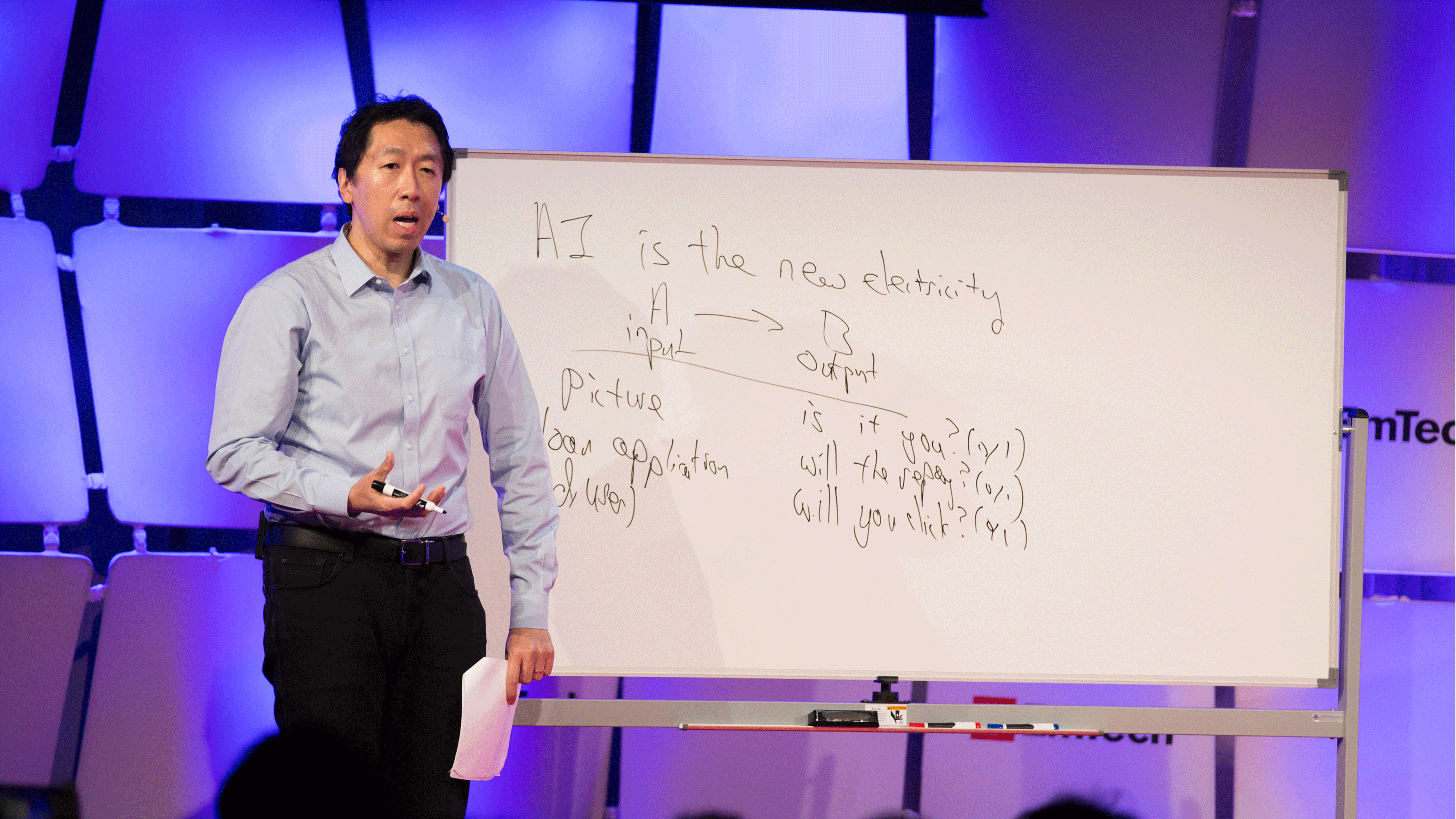Andrew Ng Wants a New “New Deal” to Combat Job Automation

Andrew Ng, formerly the head of AI for Chinese search giant Baidu and, before that, creator of Google’s deep-learning Brain project, knows as well as anyone that artificial intelligence is coming for plenty of jobs. And many of us don’t even know it.
Speaking at MIT Technology Review’s annual EmTech MIT conference in Cambridge, MA, on Tuesday, Ng said he’s visited call centers and spoken to workers, knowing that his teams of software engineers will then write software that will automate aspects of their work.
“There are many professions in the crosshairs of AI teams across the world,” he said.
Ng, who’s currently working on a startup called Deeplearning.ai that helps train people on deep-learning technology, has some ideas for helping those in jobs he thinks will be automated, from call-center workers to radiologists, truck drivers, and the like.
His suggestion is for an updated version of the New Deal—the Depression-era economic programs that invested in, among other things, getting unemployed Americans back to work—that pays displaced workers to learn new job skills.
Even if AI does not advance beyond today’s state of the art, Ng said, he believes it’s already capable of transforming all kinds of industries. Just supervised learning, the technique where a computer is given an input (such as a picture of a face) and learns to use that to predict an output (such as whether that face is you), is enough.
“Even now, if we stopped writing research papers, we have enough to transform the industry,” he said. Future waves of innovation will bring even more profound changes to job markets, and we will need a way to continue to adapt to them.
Keep Reading
Most Popular
Large language models can do jaw-dropping things. But nobody knows exactly why.
And that's a problem. Figuring it out is one of the biggest scientific puzzles of our time and a crucial step towards controlling more powerful future models.
How scientists traced a mysterious covid case back to six toilets
When wastewater surveillance turns into a hunt for a single infected individual, the ethics get tricky.
The problem with plug-in hybrids? Their drivers.
Plug-in hybrids are often sold as a transition to EVs, but new data from Europe shows we’re still underestimating the emissions they produce.
Stay connected
Get the latest updates from
MIT Technology Review
Discover special offers, top stories, upcoming events, and more.